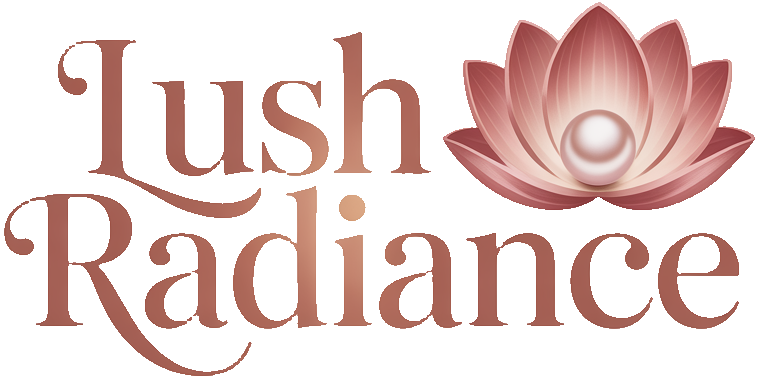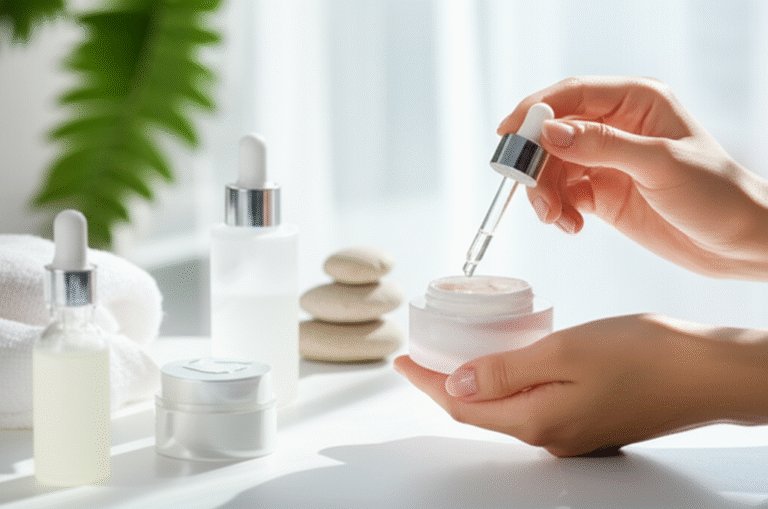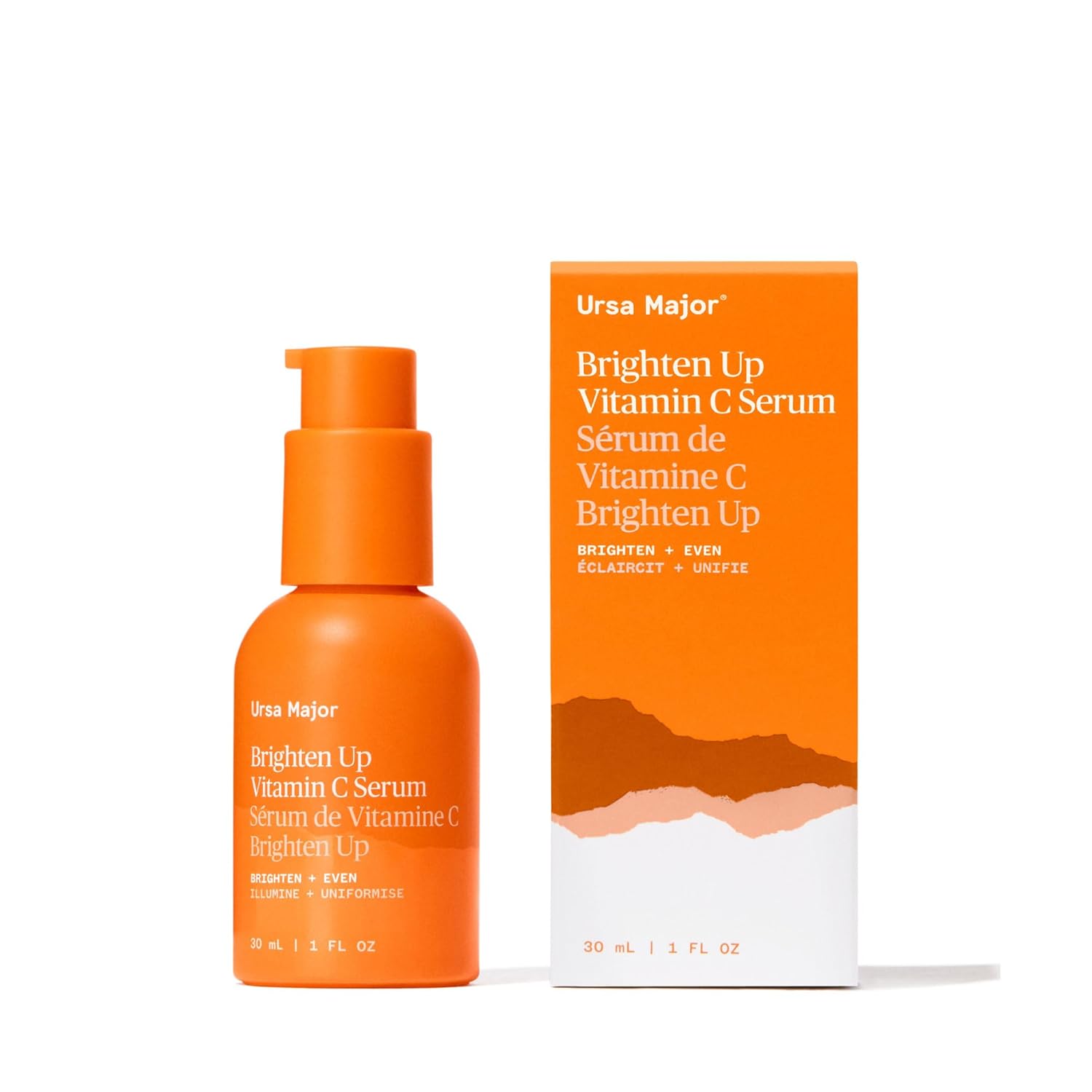Beeswax for Skin Care – Beeswax is a natural wonder for radiant skin! It forms a protective barrier, locks in moisture, and soothes irritation, making it a must-have ingredient for a healthy, glowing complexion. Discover why this golden gem is essential for your skin care routine and how to use it for amazing results.
Feeling overwhelmed by endless skin care products? You’re not alone! Finding what truly works for your skin can feel like a treasure hunt through a jungle of ingredients. But what if I told you there’s a simple, natural solution hiding in plain sight that’s been a skin care secret for centuries? Beeswax is one of those magical ingredients that offer incredible benefits for your skin without any of the fuss. It’s gentle, effective, and readily available. Get ready to unlock the secret to smoother, softer, and more radiant skin with this incredible natural ingredient. We’ll break down exactly why beeswax is a skin care essential and how you can easily incorporate it into your daily routine for that healthy glow!

Sky Organics – Organic White Beeswax
DIY Home Essentials – Beauty, Skin Care, & Crafts – 16oz
- Brand: Sky Organics
- Price: $21.99 $1.37 per ounce
- Shipping to Bangladesh: $462.70
- Size: 16oz
- Skin Type: Dry, Sensitive
- Color: White
- Product Benefits: Nourishing
- Uses: DIY beauty and craft projects, lip balm, candles, body butter, soap, lotion
Let’s dive into the golden goodness of beeswax and why it’s a proven essential for nurturing your skin. From its protective qualities to its moisturizing magic, beeswax offers a treasure trove of benefits that can help you achieve and maintain healthy, happy skin.
What Exactly is Beeswax?
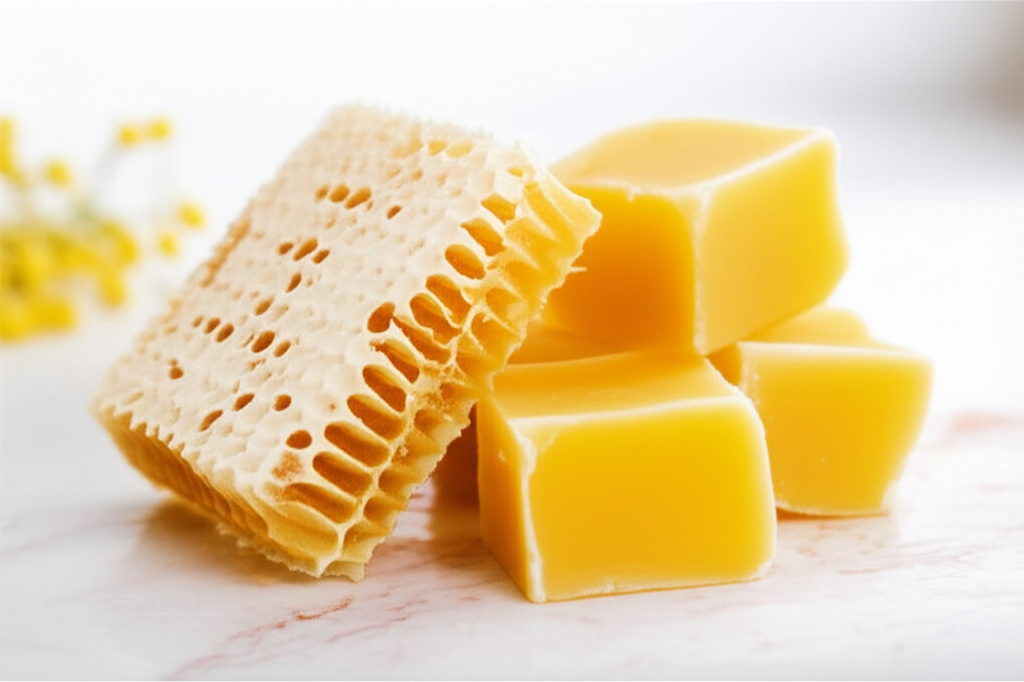
Beeswax is a natural wax created by honey bees of the genus Apis. Worker bees produce it from secretions from special glands on their own bodies. They use it to build the walls of their honeycombs. Think of it as the bees’ home-building material, but it turns out, it’s also fantastic for our skin!
When we talk about “beeswax” in skin care, it usually refers to plain, unadulterated beeswax collected from hives. It’s a complex mixture of esters, fatty acids, and alcohols, which is where its amazing skin-loving properties come from. Unlike synthetic ingredients, beeswax is a natural emollient, meaning it helps to soften and smooth the skin. It’s also known for its characteristic pleasant honey-like aroma, though refined beeswax can have a lighter scent or be virtually odorless.
Why Beeswax is a Skin Care Superstar
Beeswax isn’t just another pretty ingredient; it’s a powerhouse of natural benefits that contribute significantly to skin health. Its unique composition makes it incredibly versatile, addressing common skin concerns effectively and naturally.
1. The Ultimate Skin Protector
One of beeswax’s most impressive qualities is its ability to form a protective barrier on the skin’s surface. This is thanks to its humectant properties, meaning it attracts water from the air. When applied to the skin, it creates a natural shield that helps lock in existing moisture. This barrier function is particularly beneficial for:
- Preventing moisture loss: It seals in hydration, keeping your skin supple and preventing dryness.
- Shielding from environmental damage: The barrier can offer some protection against harsh weather conditions, pollution, and irritants.
- Wound healing support: By keeping the area moist and protected, it can create an optimal environment for the skin to repair itself. Research published by the National Center for Biotechnology Information (NCBI) highlights beeswax’s role in wound healing and its antimicrobial properties.
2. Deeply Moisturizing
Beeswax is rich in Vitamin A, which is crucial for collagen production. Collagen helps to keep skin plump and firm, reducing the appearance of fine lines and wrinkles. Its emollient nature means it softens and smooths the skin, leaving it feeling comfortable and hydrated.
This moisturizing effect makes it ideal for conditions where the skin barrier is compromised, such as eczema or psoriasis. It’s a fantastic humectant, drawing moisture to the skin while also preventing that moisture from escaping.
3. Anti-inflammatory and Soothing Properties
Beeswax contains natural anti-inflammatory compounds that can help calm irritated skin. If you’re dealing with redness, itching, or general discomfort, beeswax can provide a soothing relief. Its gentle nature makes it suitable for sensitive skin types that might react to harsher synthetic ingredients.
Its ability to form a protective, breathable layer can also prevent friction and irritation, further contributing to its soothing capabilities.
4. Antibacterial Benefits
Studies have shown that beeswax possesses natural antibacterial and antiseptic properties. This means it can help fight off certain bacteria on the skin, which can be beneficial for preventing breakouts and supporting the skin’s natural defenses. This antibacterial action, combined with its barrier-forming ability, makes it a great ingredient for maintaining overall skin hygiene and health.
5. Non-Comedogenic
Worried about pimples? For many, beeswax is considered non-comedogenic, meaning it’s unlikely to clog pores. This is a significant advantage for those with oily or acne-prone skin who often shy away from rich moisturizers. While individual reactions can vary, its natural structure tends to allow the skin to breathe.
Beeswax vs. Other Waxes for Skin Care
It’s easy to see “wax” and think it’s all the same. However, beeswax stands out from other common cosmetic waxes due to its unique composition and therapeutic properties. Let’s compare it to a couple of other popular options:
| Feature | Beeswax | Candelilla Wax | Carnauba Wax |
|---|---|---|---|
| Source | Honey Bees | Candelilla Shrub | Carnauba Palm |
| Primary Benefits | Moisturizing, Protective Barrier, Soothing, Antibacterial | Moisturizing, Firming, Shine | Hardening Agent, Gloss, Film-forming |
| Texture | Soft, Pliable, Smooth | Harder, More Brittle | Very Hard, Brittle |
| Skin Feel | Emollient, Comforting | Can be a bit tackier if not formulated well | Can feel waxy or dry on skin directly |
| Skin Compatibility | Generally well-tolerated, moisturizing | Good for moisture retention | Less common for direct skin application, more for structure in cosmetics |
As you can see, beeswax offers a superior combination of moisturizing, protective, and soothing benefits, making it a truly essential ingredient for skin care applications. While candelilla and carnauba waxes have their uses, beeswax’s inherent skin-friendliness sets it apart.
How to Use Beeswax in Your Skin Care Routine
Incorporating beeswax into your routine is simpler than you might think! You can find it in many commercially produced skin care products, or you can even make your own DIY concoctions.
1. Look for Beeswax in Store-Bought Products
Beeswax is a common ingredient in a wide range of skin care products. When you’re shopping, check the ingredient list for “beeswax” or “cera alba” (its Latin name). You’ll find it in:
- Moisturizers and Lotions: Especially those for dry or sensitive skin.
- Lip Balms: It’s a key ingredient for creating a protective barrier on your lips.
- Balms and Salves: Often used for targeted treatment of dry patches, cuts, or irritations.
- Sunscreen: It can help create a water-resistant barrier.
- Foundations and Concealers: Adds structure and helps with longevity.
When choosing products with beeswax, look for formulations that prioritize natural ingredients and are free from harsh chemicals. For instance, brands that focus on organic or minimalist formulations often feature beeswax prominently.
2. DIY Beeswax Skin Care Recipes
Making your own skin care can be fun and economical! Here are a couple of simple recipes you can try. Remember to always use high-quality, cosmetic-grade beeswax.
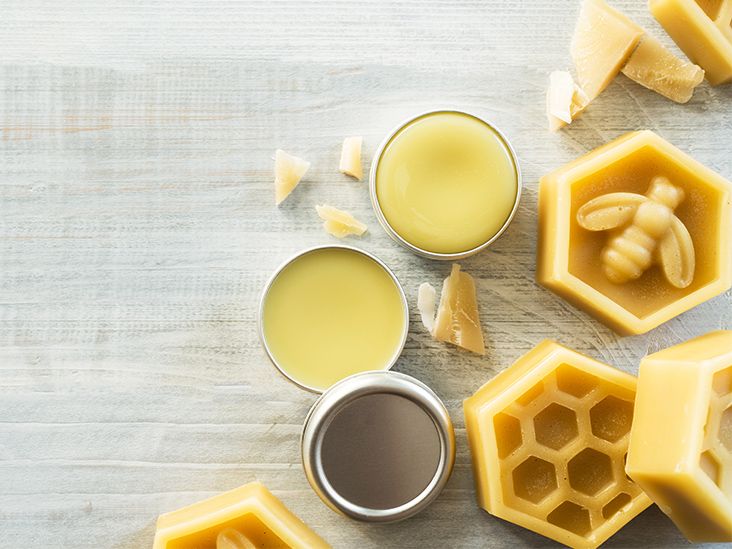
Simple Beeswax Lip Balm
This is a classic starter recipe that’s incredibly effective for protecting and healing dry lips.
Ingredients:
- 1 Tablespoon Beeswax Pellets or Grated Beeswax
- 1 Tablespoon Shea Butter or Cocoa Butter
- 1 Tablespoon Carrier Oil (like sweet almond oil, coconut oil, or jojoba oil)
- Optional: A few drops of essential oil (like lavender or peppermint for scent and added benefits, but use caution with essential oils on sensitive skin)
- Optional: Vitamin E oil for extra antioxidant power
Instructions:
- Combine beeswax, butter, and carrier oil in a heatproof jar or bowl.
- Create a double boiler by placing the jar/bowl in a saucepan with a few inches of simmering water.
- Gently stir the mixture until everything is completely melted and combined.
- Remove from heat. If using, stir in essential oils and Vitamin E oil.
- Carefully pour the mixture into clean lip balm tubes or small tins.
- Let them cool completely and solidify for a few hours before using.
Soothing Beeswax Skin Salve
Perfect for dry, rough, or irritated skin patches on hands, elbows, or heels.
Ingredients:
- 2 Tablespoons Beeswax Pellets or Grated Beeswax
- 4 Tablespoons Carrier Oil (such as olive oil, sunflower oil, or apricot kernel oil)
- Optional: 1 Teaspoon Calendula-infused oil (known for its healing properties)
- Optional: 5-10 drops of skin-safe essential oils like chamomile or frankincense
Instructions:
- Melt beeswax and carrier oil(s) together using a double boiler method as described above.
- Once fully melted, remove from heat.
- If adding essential oils, stir them in now.
- Pour the salve into clean, small jars.
- Allow to cool and harden completely. Apply to dry or irritated skin as needed.
When making your own products, it’s crucial to practice good hygiene. Ensure your tools and containers are clean to prevent contamination. You can find more detailed guides and recipes on reputable DIY beauty blogs or websites that focus on natural ingredients.
Choosing the Right Beeswax for Your Skin
Not all beeswax is created equal. The type you choose can impact its effectiveness and suitability for your skin.
- Yellow or Natural Beeswax: This is the raw form, filtered to remove impurities but retaining more of its natural color and scent. It’s generally considered the most beneficial for skin care due to its higher concentration of natural compounds.
- White or Refined Beeswax: This type has been more heavily processed, often bleached or filtered more thoroughly, to remove color and scent. While still effective, some believe it might have slightly fewer beneficial compounds than natural beeswax. It’s a good choice if you prefer unscented products or if the natural yellow color might affect the appearance of your DIY creation.
For skin care, especially if you have sensitive skin, opting for natural, unfiltered or minimally filtered beeswax from a trusted source is often recommended. Look for cosmetic-grade beeswax to ensure it’s pure and safe for application.
The U.S. Food and Drug Administration (FDA) lists beeswax as a safe ingredient for cosmetic use. However, as with any new ingredient, it’s wise to do a patch test if you have very sensitive skin or underlying skin conditions.
Potential Side Effects and Precautions
While beeswax is generally very safe and well-tolerated, it’s always good to be aware of potential considerations:
- Allergies: Though rare, some individuals may have allergies to beeswax or its components. If you have a known allergy to honey or bee products, it’s best to avoid beeswax. Always perform a patch test on a small area of skin (like your inner forearm) before applying it more widely.
- Choking Hazard: Hard beeswax products, like handmade lip balms if not formulated correctly, could potentially be a minor choking hazard for very young children if they are allowed to chew on them.
- Heavy Comedogenicity for Some: While often considered non-comedogenic, individuals with extremely oily or acne-prone skin might find heavier beeswax formulations can contribute to breakouts. This is less common but worth noting if you experience this.
If you experience any redness, itching, or irritation after using a product containing beeswax, discontinue use immediately.
What Skin Types Benefit Most from Beeswax?
Beeswax is wonderfully versatile, but it truly shines for certain skin types and concerns:
- Dry Skin: Its ability to lock in moisture makes it incredibly beneficial for combating dryness and flakiness.
- Mature Skin: The Vitamin A content and its ability to create a smoother surface can help reduce the appearance of fine lines and improve skin texture.
- Sensitive Skin: Its anti-inflammatory and barrier-forming properties can soothe irritation and protect the skin.
- Chapped Lips: It’s a staple ingredient in lip balms for good reason!
- Rough Patches: Excellent for softening rough skin on elbows, knees, and heels.
Even those with normal or combination skin can benefit from beeswax in milder formulations for overall skin protection and conditioning.
Frequently Asked Questions About Beeswax for Skin Care
Q1: Is beeswax good for acne-prone skin?
Yes, beeswax can be good for acne-prone skin! While it forms a protective barrier, it’s generally considered non-comedogenic, meaning it’s unlikely to clog pores. Its antibacterial properties may even help combat acne-causing bacteria. However, if you have very oily skin, start with products that contain lower concentrations of beeswax or ensure they are formulated with other lightweight ingredients.
Q2: Can I use beeswax on my face?
Absolutely! Beeswax is safe for facial use. It’s commonly found in facial moisturizers, serums, and even foundations. It can help protect your face from environmental stressors and lock in hydration. Just be sure to choose products specifically formulated for facial skin or use your DIY creations sparingly at first to see how your skin reacts.
Q3: How often should I use beeswax products?
You can use beeswax products daily, or as needed. For lip balms or protective salves, apply whenever your skin feels dry or needs extra protection. For moisturizers containing beeswax, use them as you would any other facial or body moisturizer – typically once or twice a day, depending on your skin’s needs and the product’s concentration.
Q4: What’s the difference between beeswax and petroleum jelly for skin protection?
While both form a protective barrier, beeswax is a natural ingredient derived from bees, offering additional moisturizing, anti-inflammatory, and antibacterial benefits. Petroleum jelly is a petroleum byproduct that primarily acts as an occlusive, trapping moisture but offering little else in terms of skin nourishment. Many prefer beeswax for its natural origins and multi-faceted skin benefits.
Q5: Can beeswax help with eczema?
Yes, beeswax can be very beneficial for eczema. Its emollient, humectant, and anti-inflammatory properties help to soothe itchy, inflamed skin and restore the skin barrier, which is often compromised in eczema. Many natural eczema creams and balms contain beeswax as a key ingredient for its healing and protective qualities.
Q6: Where can I buy quality beeswax for DIY skin care?
You can find quality beeswax at many places, including natural food stores, health and wellness shops, farmers’ markets, and online retailers specializing in skincare ingredients or beekeeping supplies. Always look for cosmetic-grade or food-grade beeswax. Check reviews and look for sellers who specify the purity and source of their beeswax.
The American Academy of Dermatology offers excellent resources on understanding skin conditions and ingredients. For example, their advice on managing dry skin often points to the benefits of ingredients that create effective moisture barriers, a key feature of beeswax.
Conclusion: Embrace the Golden Goodness of Beeswax
As you can see, beeswax is far more than just a building material for bees; it’s a truly essential ingredient for achieving and maintaining healthy, radiant skin. Its natural ability to moisturize, protect, soothe, and even fight bacteria makes it a natural powerhouse that can benefit almost everyone. Whether you’re seeking relief from dry skin, looking for natural ways to protect your lips, or wanting to create your own effective skin care remedies, beeswax offers a gentle yet potent solution.
By understanding its benefits and knowing how to incorporate it into your routine, you can harness the golden goodness of beeswax for a softer, smoother, and more luminous complexion. Don’t be afraid to explore products featuring beeswax or try a simple DIY recipe to experience its magical effects firsthand. Your skin will thank you
